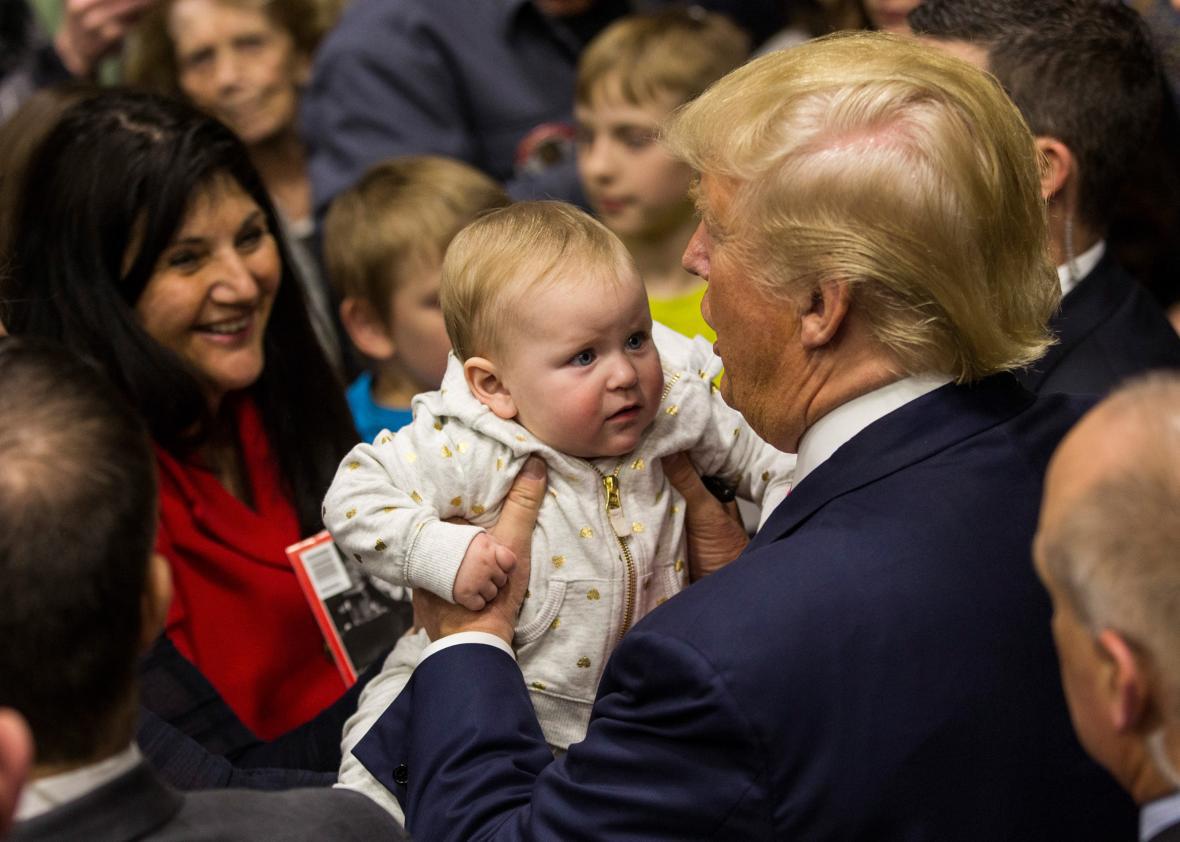As president-elect Donald Trump carries on with his transition to the White House, our country waits to see which parts of his campaign rhetoric were the swirly-twirly ideas of a callow populist, and which parts were substantial and considered enough to evolve into actual policy.
Among the big ideas many of us hope remain in the first category is Trump’s position on vaccinations. The president-elect has a long history of vaccine misinformation; he first began to express his beliefs that there might be a relationship between vaccines and autism nearly a decade ago—years after this association was scientifically discredited. He’s repeated these ideas over the years, and he never found it necessary to correct or refine his position during the election. As such, he’s left the door open for vaccine skeptics and more extreme anti-vaxxers to see his victory as one of their own.
This sort of excitement for Trump’s win appeared in a recent Facebook post by Jennifer Larson, CEO of the autism-focused Holland Center, in which she explained that she and other vaccination skeptics discussed their concerns with Trump at a donor event in August. According to her account, Trump assured them that he’s on their side.
Now that Trump won, we can all feel safe in sharing that Mr. Trump met with autism advocates in August. He gave us 45 minutes and was extremely educated on our issues. Mark stated ‘You can’t make America great with all these sick children and more coming’. Trump shook his head and agreed. He heard my son’s vaccine injury story. Andy told him about Thompson and gave him Vaxxed. Dr Gary ended the meeting by saying ‘Donald, you are the only one who can fix this’. He said ‘I will’. We left hopeful. Lots of work left to do.
Larson’s post was republished on the site Age of Autism. (While the link on the Age of Autism story doesn’t connect to an original source, Larson confirmed in an email that she posted this message on Facebook.)
The meeting Larson described was a donor event in Florida. Also in attendance was anti-vaxx advocate Andrew Wakefield, the disgraced doctor whose discredited research incorrectly suggested vaccines cause autism. As is common with such events, attendees were given a time to speak and the vaccination skeptics used it an opportunity to draw Trump’s attention to the documentary Vaxxed and allegations that the CDC has discovered, and denied, a connection between the MMR vaccine and autism, according to both Larson and Mark Blaxill, editor-at-large of the Age of Autism website. The interaction was first reported on by Zack Kopplin for Science magazine.
The fact that this conversation happened doesn’t necessarily mean that Trump is more focused on vaccine intervention than previously thought. It was at a donor event, an instance when a candidate is inclined to make all those who bought a ticket feel listened to and appreciated. But, as with so many things Trump, the absence of clearly articulated proposals and policy positions creates a lacuna in which anti-scientific ideas—along with racist, antisemitic, and misogynistic ones—can thrive. People who both think they share his ideas and have thoroughly considered policy positions to back them up are now well-positioned to amass support and feel ennobled to push harder for change.
While the federal government currently has little involvement in vaccination mandates, which are largely determined on a state-by-state basis, Trump and many of his supporters’ anti-science fervor could still lead to troubling outcomes. Such possibilities include Trump’s appointing of a vaccine skeptic or anti-vaxxer to the head of the Centers for Disease Control and Prevention, National Institutes of Health, or Food and Drug Administration. Such a decision would not only be bad news for vaccine research, but also for our longstanding commitment to empirical evidence as the foundation for public health recommendations.
